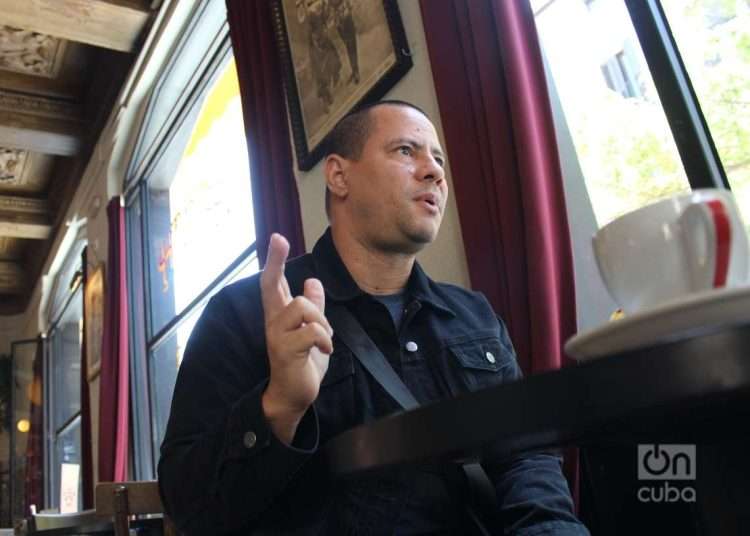This is the second time I have interviewed Israel Rojas Fiel. The first was in Havana, in 2014, a few days after a concert that Buena Fe would give at the Miami-Dade County Auditorium. It would not be his first concert in the second city with the most Cubans in the world.
They had already performed in 2009, no less than at the Manuel Artime Theater. “There were some people [in Cuba] who were upset because we played in a theater called Manuel Artime,” the director of the Buena Fe duo told me almost a decade ago, “and I’m going to be honest, I didn’t even know who he was, I found out later. And if they asked me, I would tell them that I felt proud to play in that venue, no matter what it’s called. Those who went there that day left happy.… Those songs made that place a little piece of Cuba.”
We met again in the Lavapiés neighborhood, in Madrid. I, an emigrant; him, passing through this almost always sunny and always very welcoming city. He is here preparing new concerts for his tour of Spain and some other European cities.
The one on May 12 at the Galileo Galilei was a good concert with a full house; successful as those of so many other Cuban artists who tend to appropriate that space with their music.
Everything went well, except for one incident in which a group of people, between song and song, shouted political slogans and hit each other: provocateurs and provoked people turned that fragment of the night into a repudiation rally, one of the typical ones.
Despite the fact that the full band is not there, Buena Fe manages to sound complete and the best-known songs in its repertoire mobilize the nostalgia of many in this city that has become an increasingly frequent home for Cubans.
But the media noise is not always favorable. (It is not always worth what it is preferable for them to talk about, even if it is bad).
Some activists’ voices on social media and most of the digital press that openly opposes the Cuban government have spent years directing their bitter attention against Buena Fe and Israel Rojas, accused of being unconditional and accomplices of the “regime” or the “dictatorship.”
This time the propaganda managed to dissuade some businessmen who preferred not to risk having to deal with side shows in their halls: it was so that a couple of concerts on the tour were cancelled.
Israel Rojas has denounced that, as artists, they are suffering a media lynching for political reasons in an environment in which respect for freedom of expression should prevail. Cuban artists such as Silvio Rodríguez, cultural institutions such as the Cuban Institute of Music and the president of Cuba himself have spoken out in his defense.
Almost a decade later, the open-mindedness, the advancement of tolerance in terms of political diversity that allowed Buena Fe performances in Miami in their day, seem impossible today.
What has happened in Spain in recent days with Buena Fe?
In short: in 2020 we had sold two Galileo Galilei with the album Carnal. Then came the pandemic, that project went down the drain. There were still people who had the reservation from that date.
With that debt, knowing that we had that public waiting, a call was launched to do a concert, although not with the whole band, but just four of us: Maikel Pérez, Ernesto Cisneros, Yoel Martínez and me. The date was the 12th, the 13th in Bilbao, and then from there a group of dates that included Barcelona, Zamora, Salamanca, Cáceres and Geneva in Switzerland.
Before the concerts (I found out about this later) an activist who was opposed to the Cuban government began to call for a boycott against the concert through Twitter. I can understand the need for someone to protest our presence or because they associate us as sympathetic to the Cuban government’s policy, or whatever. But I hope that it complies with what is established, which is to ask for a permit, I suppose. It is their freedom of expression, but without affecting others, those who want to listen to our music. Because it doesn’t hurt to say that our concerts are not political rallies, nor is there talk of anything like that; they are concerts of concord, peace; where we talk about love and heartbreak; where there is fun, happiness, and the desire to have a good time.
So these gentlemen had the “good idea” to publish on social media that they were going to go to the concert and make trouble. They published it ahead of time on their social media and threatened to throw eggs and things like that.
The date of the concert arrived, we arrived at the theater. (All this was alien to me. I found out later). A full house. The beautiful people; children at the concert, older people, people of all colors and flavors, Spanish, Cuban, from the right and from the left… People who like music.
The concert started. Between the first song (“Soy”) and the second (“Cámara lenta”) there was an uproar of joy; and between the second and third (“Bolero sangriento”) the merriment lasted, and it turns out that one of these gentlemen was shouting my name.
At first, I thought that, as often happens, they were asking me for a song, or something. But then I heard political slogans…. That lasted 10 seconds. All this happened in front of the bar counter, at the back of the room, behind the sound console. I couldn’t see anything there. But I sensed a ruckus. I didn’t really know what happened, but I heard people yelling “get him out, get him out” and when I saw the pushing and people on the ground, I tried to dissuade them; I said that the concert was not for that; that, please, we were there for the music; that it didn’t matter if people were from the right or the left; that this was to have a good time. Because someone from the audience, near the stage, tells me that the trouble was political, to ignore it and continue.
That’s when I alert the attendees and ask for peace. Then we performed two hours of concert. I found out later that the police had come, that they entered the concert and stayed. At the end, they asked me for autographs and said they had a good time.
When it was all over is when we found out what really happened: those gentlemen tried to make trouble and came out celebrating. It is the first time I have seen a person “victim” of violence come out happy. Because they got what they were looking for: provocation and confrontation.
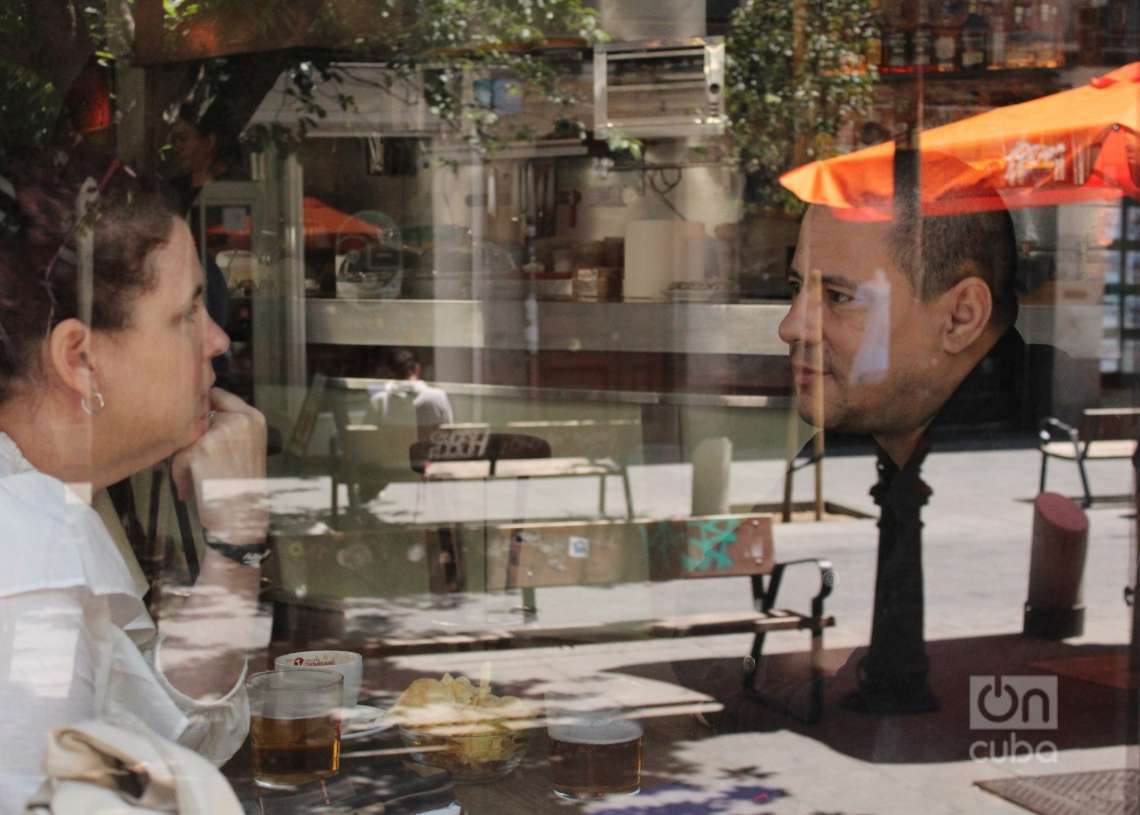
Was there any chance that a situation like that could be foreseen?
I don’t know.
Don’t you as artists have a bit of responsibility in dealing with this type of situation that can occur?
How do you do it?
You are telling me that there were threats from long before; that they announced they were going….
I found out later. But in any case, I am convinced that not even the success of the concert could prevent that incident from remaining the most important thing. The loudspeaker of the digital platforms that attack us was ready. The two hours of concert, the concerts we did, everything, can be overshadowed in comparison with that huge speaker. They turned the incident at Galileo Galilei into big news.
What do you do to prepare for that possibility?
You can’t go on stage to give love to people and be worried that a situation could arise. You trust the faces you see, happy people who want to hear your songs. I can’t go out to a concert thinking about “yours just in case”; I can’t go out to a concert thinking, “What if they throw something at me?” These are the risks of this job.
I go out to deal with my songs, which in addition are long and many are new. I try to do my best so that people leave happy.
And in the future, will you take any preventative action?
From now on, everyone who organizes a Buena Fe concert, in Europe or anywhere in the world, will do so with the conviction that they will have to face a ruthless attack, which was what happened with Salamanca and Zamora.
In Barcelona, no. In Barcelona, it happened that the day of the concert coincided with the final of the Soccer League. It was possible for Barça to win, and they did. And the fans were going to meet at the venue. The owners of the place asked to postpone our presentation. The interpretation that all these platforms made was that there had been a cancellation, but it is not true.
Yes, Salamanca and Zamora were cancelled. We are in contact with them. They are very sorry, but they are small halls and they cannot risk having a light bulb or a window broken.
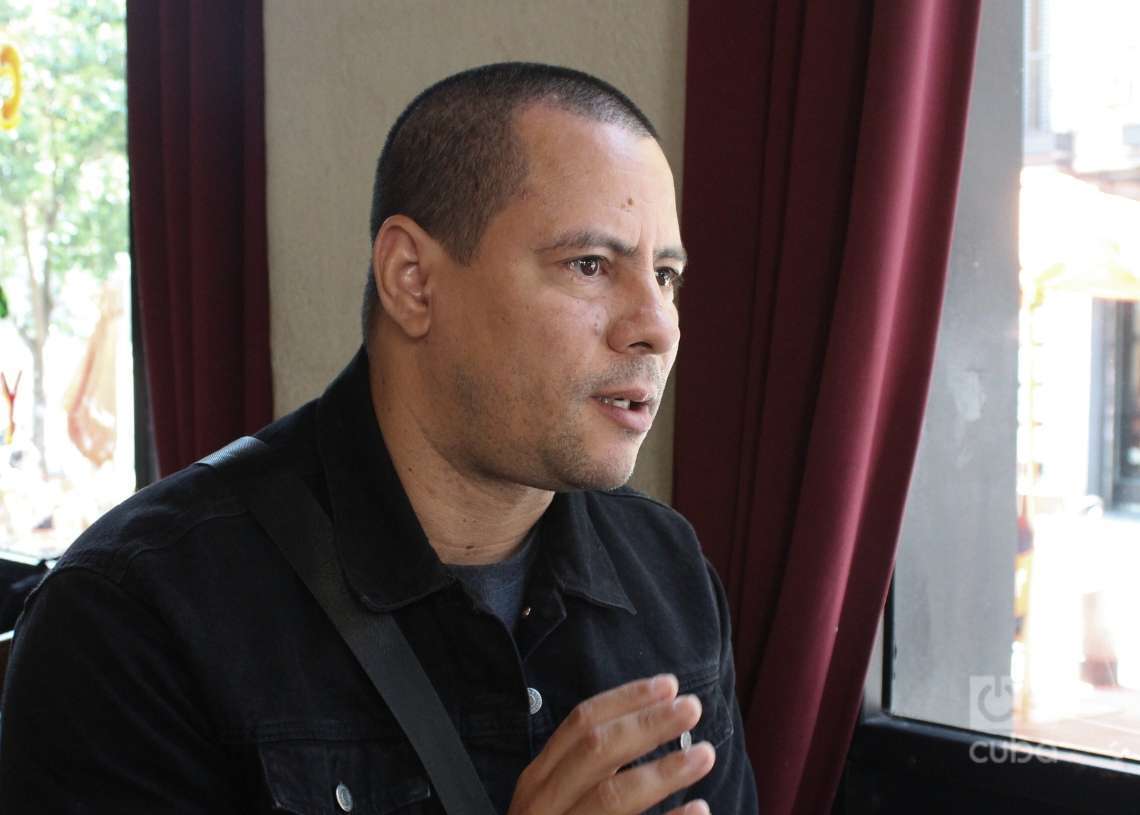
In our previous interview, you were preparing to perform in Miami, and now it turns out that performing in Spain is becoming a problem. What has changed, what has happened during this time?
This is another planet, and it is another Cuba. That was another country, still hopeful. The arrival of Obama was the arrival of many things in Cuba and Florida, where this part of the Cuban nation is, which is wherever Cubans are.
Today we are a nation traversed by the appearance of soft power that has spread radically divisive, confrontational, non-dialoguing, Plattist, McCarthyite, even fascist thinking.
Hasn’t Buena Fe changed? Haven’t you radicalized yourself to some extent?
How can I not change? It is impossible for one not to take sides in this context.
Towards where have you changed?
I think I’m more tolerant, more open to dialogue. I am more informed than before. Before I was naiver and immature. My opinions were lighter. Today I am the father of three children. Today I have wounds that I did not have before. Today I have seen the face of intolerance. And the face of McCarthyite and Plattist intolerance is many times worse than the bureaucratic-communist one. I say this with absolute certainty. The silencing, the harassment, the misrepresentation of these platforms is enormous, and they don’t stop until they get you to say what they want.
In your case, what do you think they want you to say? Is there any way to “redeem” yourself against the communication platforms that attack you?
The supposed “redemption” will not depend on me. It will depend on the change of times. There is no dialogue with the one who gives in, rather with the one who holds a position. If we survive all this, when the time for changes comes, they’ll have to say “Wow, you weren’t that wrong!” What do I defend? Not only Buena Fe, which it does in its songs. Rather me, what do I defend?
When hardly anyone in Cuba talked about it, I insisted on the need to diversify ownership in Cuba. “Don’t give me anything else, let me earn it myself” was a call in the face of the need for a robust private sector. And note that I was a rather naive man then, but with my rudiments, I felt that what the country needed was that. I sensed that more efficient ways had to be found, that the productive forces had to be unleashed, that the State could not be the protector of everyone’s destinies.
Inside Cuba, did you have problems when you said those things?
Of course.
Do you have them today?
No, because those ideas succeeded. They are being applied. I defend a robust private sector, as long as the most important things remain in the hands of the State to guarantee the possibility of a socialist State in which I believe. I defend an organic relationship of the nation with its emigration. I told you in that first interview, and that it not only be through Foreign Ministry channels, but through civil society, organizations like the José Martí Cultural Society, where we had that dialogue.
We must look for ways to reach out with a message of love, reconciliation, peace, and healing between the nation and emigration because the other thing that remains is fascism, radicalization. Let it become customary to try to explain complex things in simple ways. That simplification can lead us to blood, to violence, to civil war.
That’s what I defend. That’s why I support, despite anything, Carlos Lazo, who is my brother. There are people who tell me, are you going to support Carlos Lazo, who has openly said that he is not a socialist? That doesn’t interest me. My thing is fire, not the torch.
Now what we need is a robust economy, getting over the blockade, being able to find a way out, building bridges of love, for emigration to understand that Cuba is not the obstacle to living happily together…
But it has been…
I think so, but we must bring down the barriers that prevent any emigrant from having a normal relationship with her/his country. Today the landscape is very different. Today we have much more recognition of the rights of emigrants. Some of these rights even bring new contradictions: today a Cuban leaves Cuba and his home remains his. In my mother’s neighborhood, 60% of the houses are empty, there being a need for housing.
Life goes on and new problems arise. I believe, however, that this was the correct measure. Or what just happened with the extension of the validity of passports and the decrease in their cost. I hope it won’t take long for the eight-year entry ban on Cubans who deserted from a mission to be lifted. It is something very lacerating and it hurts the nation because it hurts the family; it hurts those who leave and those who stay.
I defend that in Cuba there should be no censorship. I have come out in defense of artists who have been censored. I defend the right to protest. I have said it publicly. I have been with Silvio when he said that it is necessary to create a regulatory framework in which the right to protest is organized.
There is a very sensitive issue: the prisoners after the July 11 protests. It is no longer just the usual actors who oppose the government who classify them as “political prisoners.” It is a topic of prime importance on the agenda of, for example, those who went to the concert in Buena Fe to protest against you. What do you think about this? Is it fair to maintain such severe sentences for these people?
When the J11 protests occurred, I wrote a post — which, of course, nobody expanded — in which I said that what was necessary for our country at that time was the release of all the detainees.
Having seen what has been seen afterwards, I believe that anyone who has committed an act of violence, who has destroyed public property and has committed acts of vandalism must comply with what is established in the law. Any other person who is deprived of freedom for a matter of thought, or ideological difference… How can I agree that this person is serving a sentence?
Are there prisoners in that situation?
Not that I know of. And I’m not going to talk about something I don’t know. If someone lets me know…. They will be able to say that I don’t know because I don’t want to know. It is not like this. I am not informed about everything. I am a common citizen who has to deal with the many problems that exist in Cuba, who has three children, a band to direct, some concerts to do. I am not aware of everything that happens with the activists who oppose the Cuban government.
Ask me about my collaboration with the Martin Luther King Memorial Center, with various social programs in which we participate; ask me about our collaboration with Bridges of Love, which often generates quite a lot of work.
I don’t have all the truths. I’m a guy like any other and I don’t know of those cases. If I knew them, I would agree with those sentences being re-evaluated and I am more than in agreement with these people being released. And also, that it not be a precondition that they change their minds or ideas or anything like that.
Every day there must be more space for everyone, whatever they think, to participate in society. It is what I would like to see. Without ignoring that there is an agenda, financed from outside Cuba, to promote a kind of fifth column that aligns with the interests of the blockade, to cause more problems for Cuban society. It would be dishonest if I don’t say what I see from one side and from the other. And I also think that every State has the right to defend itself. This is perhaps not what others want to hear, but it is what I have to say.

Silvio Rodríguez has written these days, in light of these events, about “the unruly questions that Buena Fe is bringing up.”
Silvio, fortunately, still listens to our records. Those who listen to the album Carnal, and in particular “La Catrina.” The thing is that some people don’t want to listen to it.
“La Catrina” is a very harsh song against corruption. Because for me, all those public officials, all those who today embezzle or mismanage resources that are for the well-being of all in a time of such harsh economic crisis…. All those who allow themselves to appear on social media speculating wealth, splendor….
Including relatives of high-ranking leaders.
Whoever. To anyone who has a position and forgets what the ethics of the Revolution represents, which has always been austerity, and set foot on the ground with the last on the line…. For that one “let La Catrina come and give him her love.” Because that is disrespectful. Any such act of ostentation is undignified, and it’s even worse right now.
Para que nadie quiera encaramarse en zancos
Como corrupto y ladrón de «cuello blanco»
Antes que ahora se vuelva después
La niñez, la vejez
Tengan blindaje contra insensatez
Y el apetito del abusador
Y si persiste el surtidor de dolor
Pues
Que venga la Catrina y que le dé su amor
Those are the “unruly questions” that we continue to ask, ours, not those of the media agenda that they want to impose on us from outside. We work for the here and now; perhaps that is why our concerts continue to be filled with young people.
And that is another line of message against us: that they don’t hear us. Absolutely false. We just did a national tour. All the seats were full, singing the songs from our last two albums.
You have a song in Morada [Home] that says that “the best songs are the oldest.”
Yes, but that song, “Las más viejas” [The oldest], says:
Claro que es falso y semeja un cadalso
Donde ajustician de nuevo a lo nuevo.
Antipático halago,
Coja lisonja y elogio de hielo.
Probatoria de buena memoria
Y aunque embuste, ¡Qué bien que te guste!
La falacia más bella mundo
Socorrida mentira que repetirás.
It’s something that happens to us singer-songwriters a lot. If you now see Ismael Serrano or Silvio himself. They will surely want to sing the last song they did. You are going to listen to it out of respect but then you are going to want him to sing the one you know, the one that is part of your emotional accumulation.
That song opens the album Morada.
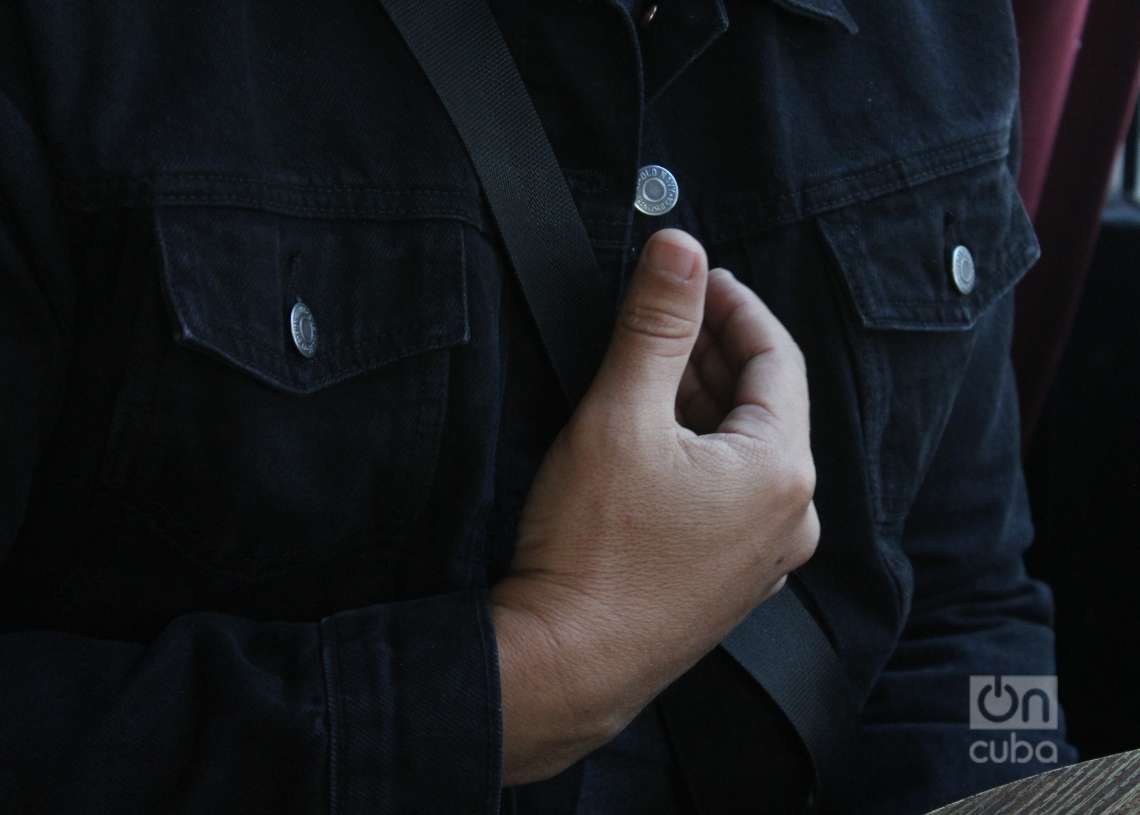
In that song you develop a comparison between the old and the new, and Cuba has been doing that for many years. With an institutional direction, with an old leadership. Even in this era in which continuity is highly valued, that old age continues to drag on and the new has not yet been born. There are several generations of Cubans who could not participate in leadership positions in Cuba. What do you think?
Well, in fact, there are not a few people who have asked me to participate in positions; but I love what I do, and I think that from there I am quite useful. As long as people still like what I sing and keep going to concerts, we’ll keep going.
But our generation is not playing a leading…
We lost many useful and good people who could have contributed novel ideas and also their own mistakes, which were the ones that fell to their own generation; so that the one that comes behind grows and surpasses it. There is definitely a gap, unrecoverable.
With the new Constitution, there are terms for the posts that will have to be seen sooner rather than later. And I hope to see it. When I talk to university students, I tell them that Díaz-Canel is in his last term. That the same thing is going to happen with the majority of the leaders, and it will be necessary to start preparing those who come behind.
And what happens if those people are leaving Cuba? What to do to retain these young people or to attract those who left?
All this happens because of the economic crisis, we are risking the nation. I also see many very good young people who are staying and are very committed to the destiny of the country. The experience that I see in the Martin Luther King Jr. Center, with the youth training center, of people who come from faiths that are not orthodox, is not the classic UJC [Union of Young Communists] militant. Today there is another way of thinking Cuba, of those people who are earning to be the vanguard. The idea that the vanguard would come from the UJC is no longer the case. There are people who are from the UJC who are vanguards, but there are also mediocre people. And there are other sources of leadership that are emerging, I work with them, and it gives me great hope to meet them.
Will they stay in Cuba?
Hopefully, hopefully they are passionate. I stayed in Cuba out of passion. Many years ago, if we had wanted to, we would have been based in Mexico or Argentina. Because we had the proposal; here in Spain we had the proposal. But I am passionate about the Cuban reality, I feel that my songs are born and grow thanks to the fact that I live in that reality. Those young people who are enthusiastic today will stay in Cuba, opening a business, or directing processes at the grassroots level or leading a community. Hopefully.
I believe that we must be very prepared for that other experience that I hope will happen, which will be the improvement of the economic and material conditions of Cuba, and the return of many people who came to these societies, thinking that they were going to fulfill their dreams and they won’t do it. And of those many people, there will be those who return with a great desire to contribute, with a lot of knowledge, with other visions of the world. We need people who have had the experience of living another reality, who have another vision, who understand what cold and heat are. That they have another way of understanding beauty, the culture of detail, because, for a long time, the botch seems to have a swing, but it doesn’t, it’s botch.
I remember that between 2016 and 2017, about 12,000 people returned to Cuba. I am completely convinced that if we survive this year and next year the country assumes it with a better economic condition, there will be many people who will return. I hope so, I have that faith. I know that you are going to see people who are going to continue leaving too.
Let not only those who failed to fulfill their dreams return. It is good that those who found success can also return.
Many of the people who are returning today are doing so because they fulfilled their dream, and they have capital to invest. What I was telling you about those who did not fulfill their dream, in need of the recovery of a social fabric that has not been lost to the nation. They may have gone to Houston, Miami or Madrid, but they are always Cuban. I have the experience in my family: I have a relative who left for Hungary, jumped to Germany, returned to Cuba. He came on the last flight out of Germany when the pandemic started; he is from Baracoa, he passed the pandemic in Baracoa, he rejoined public health and has just gone to Venezuela on a mission.
The number of Cubans who, in Venezuela itself or in other countries, have rejoined the medical brigades, living there. Prejudices have fallen, which, for me, is wonderful that this has happened, to achieve a different understanding of Cubanness.
There will also be Cubans who return and have a political vocation and I hope they will not find obstacles to participate in the political life of the country. No stigmata.
Now, let there be no doubt that the people who are opening MSMEs in Cuba have repatriated capital. Do we need that? We need that by the thousands. We need every Cuban who is doing well to think about how to help develop their country. That would be wonderful, but unfortunately, if the media platforms financed to continue raising hatred continue, to continue generating antipathy for your own nation, I see it as difficult, it is more difficult.
But it shouldn’t be that this becomes the argument for postponing things, or making changes little by little, of “yes, but not that much.”
I agree, but the perception I have is that today things are happening in Cuba faster than before. For example, the Family Code is such a revolutionary process, so progressive, that it’s no longer under discussion. People get married, and it’s absolutely normal, regardless of whether they are of the same sex. And nobody is upset because it is settled in a court that a grandmother is going to keep custody of a child from parents who do not care for him.
What has happened with passports, which is something that has been discussed for a long time, is another example. Or the approval of MSMEs and the expansion of regulatory frameworks. Before, self-employment was regulated by the economic activities that could be carried out; now it only defines what cannot be done.
I have collaborated with Oniel Díaz, from Auge, on this issue of MSMEs and although there is much to improve in tax matters, the formulas for opening an enterprise are quite standard, similar to those found anywhere in the world. All of that has changed.
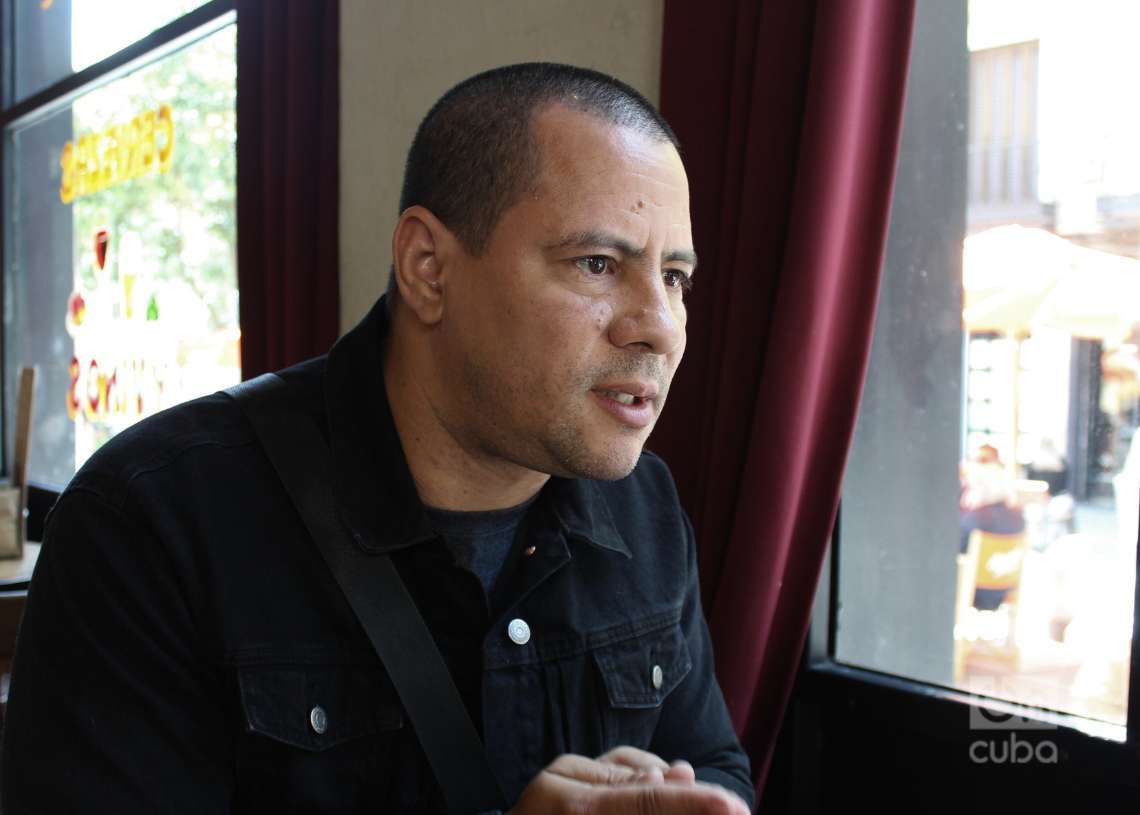
Within all these changes, the Task of Reorganization has affected us all. We are seeing a rebirth of a kind of CUC, now as an electronic currency, the MLC [freely convertible currency], and quite devalued; destroyed wages, enormous inflation, shortages…
I think we all agree that the Task of Reorganization should have been done earlier, in a better economic condition. I believe that any Cuban with half a brain realizes that it was done quickly and badly, perhaps to comply with the deadlines of the Party Congress, and it was done at the worst moment.
I’m sure those who did it didn’t think it was going to turn out like this. But I agree, we have all been affected, it has been disastrous, it has generated quite compromising situations in the economy. It has generated poverty, sometimes scandalous poverty.
I travel throughout the country, and it makes me very sad to see truly dreary regions. Poverty is always sad but when it involves your people, much more. It’s true. Hopefully, everything that is being done gets us out of the quagmire and creates a legal framework that serves the economic complexity that all the actors need for the country to move forward.
The economist Oscar Fernández once told me that a country’s economy generally works like a forest. In order for the big trees to be seen, there must be ferns, mosses, insects underneath, all of this is what the ecosystem creates so that the forest is healthy and sustainable.
Hopefully, that is happening in Cuba: the mosses, the ferns so that the oaks and the palm tree start growing. It’s what I want the most.
Let’s talk about music, about the Morada album, the thirteenth… You said that it deals with everyday universes.
Morada is the record of the pandemic, the record of the experiences of the pandemic. It was like discovering that little world of everyday life, of everyday beauties. The children, the couple, the mother-in-law. Concern for family and also for friends; missing concerts and the things you are passionate about. Reading the books you had pending, watching the series you wanted to see before and didn’t see. Getting into problems that you thought you were not going to get into, like the “madness” of supporting Carlos Lazo; or opening a space on Habana Radio and that this space would be so liberating for me. It was a stage of great growth, of great fear, it was the stage in which I also lost my father. Many things happened that have to do with the home things.
So the album goes that way, seeing our common home that is the planet, seeing that common home that is the songs, the family, seeing the affections and the friends.
All the songs are trying to knit together. They are like beads on a necklace that are pierced by this concept of the home. I think it’s the best of the albums we’ve made to date and, for me, Sobreviviente is a very good album, but Morada is an endearing album, I have a special affection for it.
It gives me great pleasure to sing it live, and it hurts me a lot that all this polarization is making it difficult for people to know it.
People say: “they are not what they were before.” And I ask them: “have you heard the record yet? Listen to the record, listen to me. I’m not asking you to fall in love with it, I’m just asking you to enter that creative universe. That you see what we did, that you see the work of young arrangers. That you laugh with ‘El hipopótamo’ that you think of your family when you listen to ‘Morada,’ that you think of your friends when you listen to ‘Siembra.’ I only ask that.”
It’s a conciliation record, it’s a love record, made in a period in which I was never more subjected to media attacks, lynchings, and what came out was a warm, noble love record. I am very happy with that material.
For me it was a test, there were times when I told myself that I was not going to be able to write after these ugly, harsh experiences of betrayal. I was afraid of becoming a poisoned person, on the defensive. I have never been a defensive person.
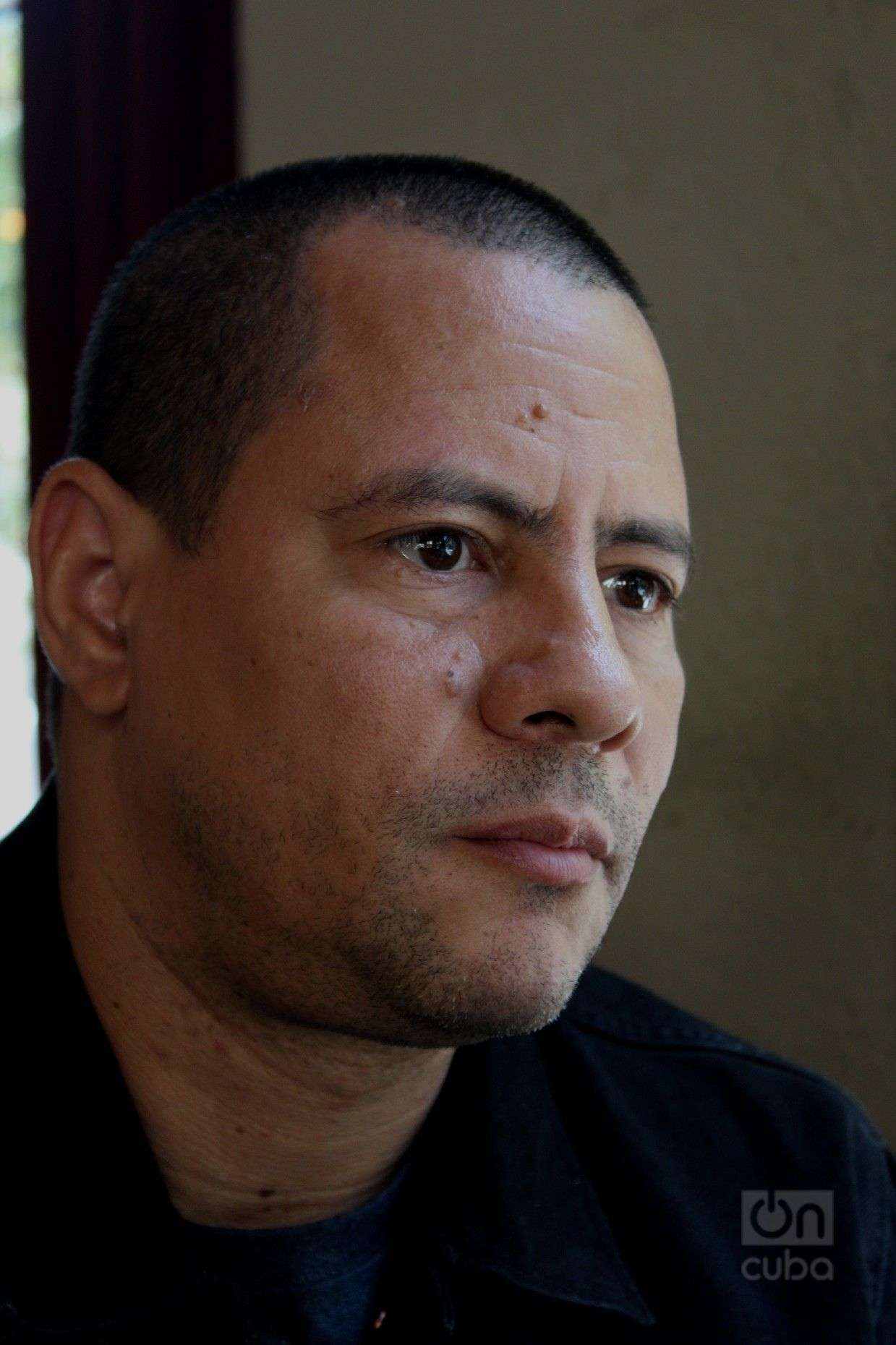
I heard you say in an interview a couple of days ago that you feel lonely.
I have simply done the same thing that Sabina has done in his time, Silvio in his time. Those are my paradigms, intellectuals who committed to their reality and did not shut up. I reread Pablo’s interviews from the 1980s, from the 1990s, everything he has said, when he was in favor, when he was not, and I admire him, I admire his courage, his honesty. And while I may or may not agree with him, I admire him. The same thing happens to me with the singer-songwriters of my generation, the less media-focused ones who, when they express themselves, do so with a tremendous commitment to their reality. The people of La Trovuntivitis talk about the problems of Villa Clara in their songs. That is what I am.
So life puts me in this collimator. If you think that someone is going to do battle for you, you are wrong. If that happens, be surprised, but don’t expect it.
The public saves you.
My songs and the honesty with which I assume the performance of the concert save me. I am very pleased that at the last concert, there were people who came to see me and gave me a hug and said, “I don’t think the same as you, but you can’t imagine how much I needed this.”
Now that for me is the Grammy that I once had the illusion of having and then I realized that it was not that way, for me it was never going to be that way; that is the true prize, what I feel that my music touches, feeds, saves, transforms, improves, alleviates, heals, or makes you cry with repairing tears. It saves me to see the kids singing “El hipopótamo,” a song that they still don’t fully understand, but that they find pleasant and the parents with their sly face know what we are talking about. So I’m happy, and it’s awesome.
Everything happens, what they say about one, the media attacks. But people listen to the songs again. I don’t say it, Spotify says it, I don’t say it, our distribution channels say it.
Just look at how tricky and slanderous the attacks are. There was a publication from all these platforms that said that according to I don’t know what statistic that we were the artists who had lost the most on digital platforms, but that is totally false.
Could it be that you attach a lot of importance to those platforms?
I don’t think they matter so much, I don’t read them. There is a world beyond that, a world of precious things, of wonderful people to meet, of beautiful causes. Cuba changes every day and knowing that Cuba is food to make the best songs that I have not yet written.
But even if they don’t matter, I can’t deny that they’re there, my neighbors consume them. I went down to the park with my daughters and they approached me and said: “Hey, is it true that you said that we are abnormal?”
I am not a man who offends, and I apologize a thousand times to everyone who believes that I called them abnormal. What I said was, in a direct interview with Virulo and Carlos Lazo, that my songs paid tribute to the construction of bridges of love between human beings, and that I could not understand h someone could accuse me that my songs paid tribute to violence. And I said that whoever sees it that was is abnormal.
Do you regret that word?
I regret having given myself away like that, because honestly, I said it relaxedly, carelessly, I didn’t say it thinking about the repercussions it could have, I didn’t realize that the attack on Carlos Lazo was so sharp and that what I was doing was going to be collateral damage, juicier than everything beautiful that was talked about directly. One learns by making mistakes. That’s why I told you when you asked me what has changed in me: the wounds. There are people to whom you can explain, but there is so much poison, the need to hate is so great. They need to blame someone, and whoever they have on hand to blame, this one who called them “abnormal” and these platforms dedicated time to this.
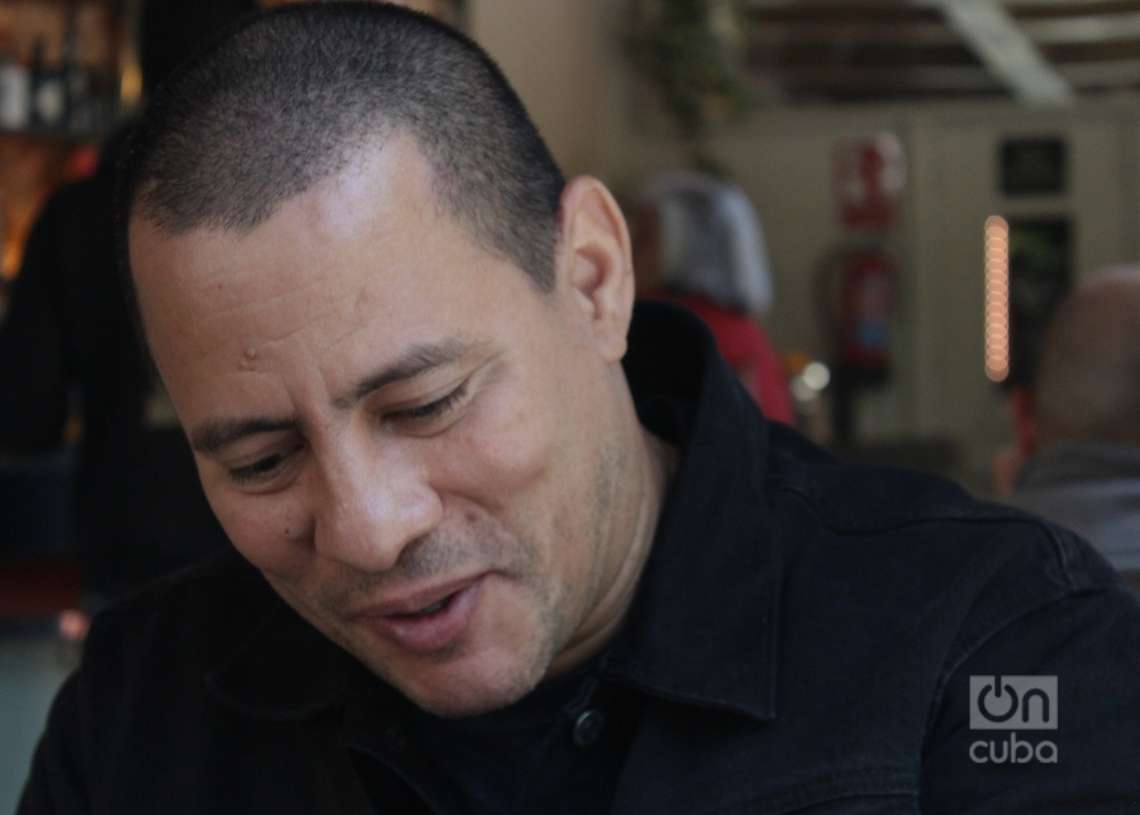
You have mentioned Carlos Lazo several times. Who is he for you?
I feel Carlos Lazo like a son and a father, depending on what passion he turns on, depending on what dog barks at him. Carlos is my brother, he is a guy for whom I have a very special affection. Because I understand the dangers he faces for saying what he says. Because I think his personal story is interesting enough, disruptive. And you wouldn’t believe how loving he is. It seems unlikely that someone could be like this and that’s why they attack him so much. That’s why he’s so easy to manipulate because anyone who isn’t as tall as Carlos will always try to drag him into the dwarfism of himself. If they are going to kill me, let them kill me next to people like that. If they are going to kill me, let them kill me helping people when the hurricane passed, with the people from the CIGB putting up roofs. If they are going to kill me, let them do it for things I do without the need for publicity. I already stayed in Cuba, that is my truth, everything I do is for my children to see that there is another way to achieve happiness, that it is not just having, that it is participating, helping others. That was what my dad and mom taught me.
It’s complicated because I live by selling songs, at a time when I can’t escape this confrontation, which has become so acid, so raw. And sometimes I fear that one thing will bury the other, sometimes I fear that all these problems will prevent people from reaching Morada, from finding its richness, its beauty in those songs. And seeing people who are cured with them, it hurts me that there are people who do not enter due to prejudice and miss them.

